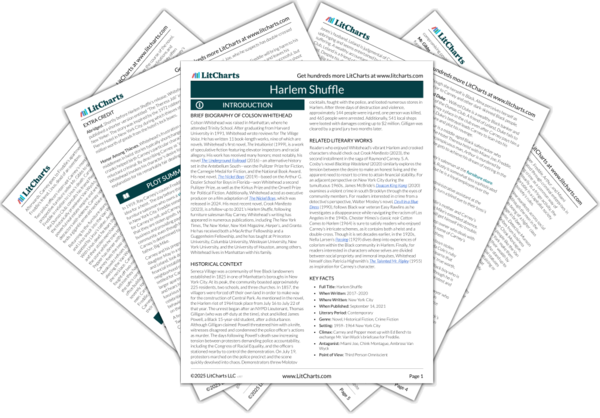Like Carney, Pepper understands Duke and Dixon as salesmen, noting that influence and power are sellable products, just the same as heroin. Here again, the novel shows how capitalist enterprise pervades every social class and often takes criminal form, even among the upper classes. Carney’s relief that Freddie is not working for Biz is tinged with guilt for suspecting his cousin in the first place. Knowing that Freddie will be arrested alongside Dixon later in the chronology only amplifies that guilt. That Pepper is angry with Carney for paying him to do police work suggests such work violates his mysterious code of ethics—he seems personally offended that Carney would have him assist a criminal’s number one enemy: the law.


